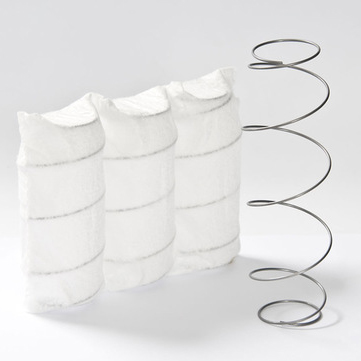The United States was originally China’s second-largest trading partner. After the Sino-US trade friction broke out, the United States gradually dropped to China’s third largest trading partner, after ASEAN and the European Union; China dropped to the second largest trading partner of the United States.
According to Chinese statistics, the trade volume between China and the United States in the first five months of this year reached 2 trillion yuan, a year-on-year increase of 10.1%. Among them, China’s exports to the United States increased by 12.9% year-on-year, and imports from the United States increased by 2.1%.
Mei Xinyu, a researcher at the Research Institute of the Ministry of Commerce of China, said that because China is the world’s largest exporter, the removal of additional tariffs can reduce the burden on exports, and industries and companies that export more to the United States will benefit from a wider coverage. If the U.S. cancels the additional tariffs, it will benefit China’s exports to the U.S. and further expand China’s trade surplus this year.
As Gao Feng, a spokesman for the Ministry of Commerce, said, in the context of high global inflation, in the interests of businesses and consumers, the cancellation of all additional tariffs on China is beneficial to China and the United States, as well as to the whole world.
According to the latest data from the General Administration of Customs of China, from January to May, the total value of trade between China and the United States was 2 trillion yuan, an increase of 10.1%, accounting for 12.5%. Among them, the export to the United States was 1.51 trillion yuan, an increase of 12.9%; the import from the United States was 489.27 billion yuan, an increase of 2.1%; the trade surplus with the United States was 1.02 trillion yuan, an increase of 19%.
On June 9, China’s Ministry of Commerce said in response to the report that the United States was studying the cancellation of additional tariffs on China, “We have noticed a series of recent statements by the United States about considering the cancellation of additional tariffs on China, and have responded many times. The position on this issue is consistent and clear. In the context of high global inflation, in the interests of businesses and consumers, the cancellation of all tariffs on China will benefit China and the United States and the entire world.”
Teng Tai pointed out that the cancellation of US tariffs on China will promote the normalization of Sino-US trade, and it will also have a positive effect on the export of related Chinese enterprises.
Deng Zhidong also believes that the US economy is currently under pressure. As a politically-considered tariff barrier, it violates the laws of economic and trade development and has an extremely adverse impact on both sides. The U.S. canceled the additional tariffs, boosting economic and trade exchanges between the two sides and driving the recovery of the global economy.
Chen Jia predicts that if there are no major setbacks in the prevention and control of the epidemic, orders from enterprises in related industries in China can indeed recover. “Although some supply chains have indeed moved to Vietnam, overall Vietnam’s strategic influence on the global supply chain cannot be compared with China’s in the short term. Once tariff barriers are removed, with China’s strong industrial chain configuration and supply chain security capabilities, in the short term It is difficult to have competitors in the world.” Chen Jia added.
Although the adjustment of US tariffs on China is very likely, it is undoubtedly good news for Chinese exporters, but Chen Jia believes that it is not appropriate to be too optimistic about the growth rate.
Chen Jia talked about three reasons for Times Finance: First, China has studied and judged the international trade pattern in recent years, and adjusted its trade structure in the same period. The trade volume with the United States has dropped to the third place, after ASEAN and the European Union. .
Second, in recent years, China has been carrying out industrial chain upgrades and supply chain security work, and the relocation of some excess industrial chains is an inevitable result.
Third, the structural problems of U.S. consumption are relatively serious. If the tariffs on China are lifted in time, it will be difficult for the Sino-U.S. trade volume to achieve breakthrough growth in the short term.
As for the RMB exchange rate, Teng Tai believes that the adjustment of U.S. tariffs on China is beneficial to Sino-U.S. trade, but it will not have an important impact on the RMB exchange rate.
Teng Tai said that the RMB exchange rate is affected by various factors, mainly the current account, capital account, and errors and omissions. However, from the perspective of the past few years, Sino-US trade has always been in China’s surplus, and China’s capital account is also in surplus. Therefore, although the RMB has experienced periodic and technical depreciation, in the long run, there will be more pressure to appreciate.
Post time: Jul-07-2022








